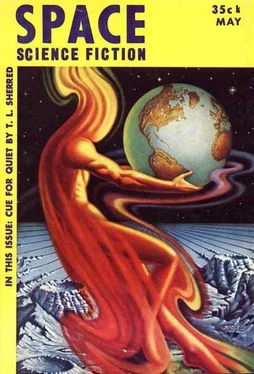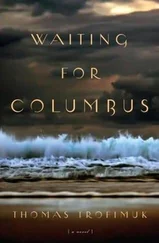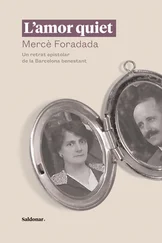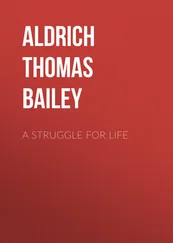Thomas Sherred - Cue for Quiet
Здесь есть возможность читать онлайн «Thomas Sherred - Cue for Quiet» весь текст электронной книги совершенно бесплатно (целиком полную версию без сокращений). В некоторых случаях можно слушать аудио, скачать через торрент в формате fb2 и присутствует краткое содержание. Год выпуска: 1953, Издательство: Space Science Fiction, Жанр: Фантастика и фэнтези, на английском языке. Описание произведения, (предисловие) а так же отзывы посетителей доступны на портале библиотеки ЛибКат.
- Название:Cue for Quiet
- Автор:
- Издательство:Space Science Fiction
- Жанр:
- Год:1953
- ISBN:нет данных
- Рейтинг книги:5 / 5. Голосов: 1
-
Избранное:Добавить в избранное
- Отзывы:
-
Ваша оценка:
- 100
- 1
- 2
- 3
- 4
- 5
Cue for Quiet: краткое содержание, описание и аннотация
Предлагаем к чтению аннотацию, описание, краткое содержание или предисловие (зависит от того, что написал сам автор книги «Cue for Quiet»). Если вы не нашли необходимую информацию о книге — напишите в комментариях, мы постараемся отыскать её.
Cue for Quiet — читать онлайн бесплатно полную книгу (весь текст) целиком
Ниже представлен текст книги, разбитый по страницам. Система сохранения места последней прочитанной страницы, позволяет с удобством читать онлайн бесплатно книгу «Cue for Quiet», без необходимости каждый раз заново искать на чём Вы остановились. Поставьте закладку, и сможете в любой момент перейти на страницу, на которой закончили чтение.
Интервал:
Закладка:
Thomas L Sherred
Cue for Quiet
Cue for Quiet, by Thomas L. Sherred
Title: Cue for Quiet
Author: Thomas L. Sherred
Illustrator: Orban
Release Date: June 19, 2010 [EBook #32889]
Language: English
Character set encoding: ASCII
This etext was produced from Space Science Fiction May and July 1953. Extensive research did not uncover any evidence that the U.S. copyright on this publication was renewed.
[Illustration]
CUE FOR QUIET
BY T. L. SHERRED
ILLUSTRATED BY ORBAN
PART I
[Illustration]
So I had a headache. The grandfather of all headaches. You try working on the roof line sometime, with the presses grinding and the overhead cranes wailing and the mechanical arms clacking and grabbing at your inner skull while you snap a shiny sheet of steel like an armored pillowcase and shove it into the maw of a hungry greasy ogre. Noise. Hammering, pounding, shrieking, gobbling, yammering, incessant noise. And I had a headache.
This headache had all the signs of permanency. It stayed with me when I slid my timecard into an empty slot that clanged back at me, when I skittered across a jammed street of blowing horns and impatient buses with brakedrums worn to the rivets, when I got off at my corner and stood in the precarious safety of a painted island in a whirring storm of hurtling hornets. It got even worse when I ate dinner and tried to read my paper through the shrill juvenile squeals of the housing project where I live surrounded by muddy moppets and, apparently, faithless wives and quarrelsome spouses. The walls of my Quonset are no thicker than usual.
When Helen-that's my wife-dropped the casserole we got for a wedding present from her aunt and just stood there by the kitchen sink crying her eyes out in frustration I knew she finally had more of a mess to clean up than just the shattered remains of a brittle bowl. I didn't say a word. I couldn't. I shoved the chair across the room and watched it tilt the lamp her mother bought us. Before the lamp hit the floor my hat was on my head and I was out the door. Behind me I heard at least one pane of the storm door die in a fatal crash. I didn't look around to see if it were the one I'd put in last Sunday.
Art was glad to see me. He had the beer drawn and was evening the foam before the heavy front door had shut us off from the street. "Been a while, Pete. What's new?"
I was glad to see him, too. It was quiet in there. That's why I go eight blocks out of my way for my beer. No noise, no loud talking or you end up on the curb; quiet. Quiet and dark and comfortable and you mind your own business, usually. "Got any more of those little boxes of aspirin?"
He had some aspirin and was sympathetic. "Headache again? Maybe you need a new pair of glasses."
I washed down the pills and asked for a refill on the beer. "Maybe, Art. What do you know that's new?"
Nothing. We both knew that. We talked for a while; nothing important, nothing more than the half-spoken, half-grunted short disjointed phrases we always repeated. Art would drift away and lean on the other end of the bar and then drift back to me and at the end of each trip there would be clean ashtrays and the dark plastic along the bar would gleam and there would be no dregs of dead drinks and the rows of fresh glasses would align themselves in empty rows on the stainless steel of the lower counter. Art's a good bartender when he wants to be. I held up my empty glass.
"One more, Art. Got the radio section of the paper?"
He handed it to me. "Might be something on the television."
We both laughed. We both feel the same way about television, but he has to have a set in his business for week-end football or baseball games. A big set he has, too, with an extra speaker for the far end of the bar for the short beer trade. I found the program I wanted and showed Art the listing.
He looked at it. "Strauss … that's that waltz music," and I nodded and he went over to the radio and found the station. These small stations can't sell every minute of their time for commercials, although they try, and every once in a while they run through a solid hour of Strauss or Bing Crosby or Benny Goodman. I like Strauss.
And there I sat drinking beer and eating stale popcorn when I should have been home with Helen, listening to quiet violins and muted brasses when I should have been doing something noisy and instructive. In my glass I could see whatever I wanted, wherever I would. I made circular patterns on the bar and drew them into a grotesque mass with fingers wet with the silver condensation of bubbles drawn magically through impervious crystal. Then Art turned off the radio.
He was apologetic, but he still turned off the radio. In answer to my unspoken question he shrugged and indicated Freddie. Freddie likes television. He likes dog acts and circus bands and bouncing clowns. He watches the commercials with an innocent unjaundiced eye. Sometimes he sings along with the animated bakers and cooks and gas stations at the top of his boyish beery baritone. He sings loud, and he likes his television the same way.
Art flipped up the lid of the television and stood there long enough to make sure the picture, whatever it was, would be in focus. Then he came back to me and poured another. Hesitating, he added another smaller glass. I can't afford that stuff on what I make. Where I made my mistake was taking it. We each had another. And another. The headache got worse.
Ivan and Jack came in, and, when they heard the blast of sound, came down to my end of the bar where, although the extra speaker is overhead, you don't have to look at the source of the noise. Art handed us a deck of cards and a piece of chalk to keep score and we started to play euchre. You don't have to think to play euchre, which is good. It's about the only game you can play with sign language, the only game for a noisy bar. So we played euchre, and at ten-thirty Ivan and Jack left me alone to face the music. The little cords at the nape of my neck were tight as wires, the temple areas near my eyes were soft and tender and sore to the touch, and my head was one big snare drum.
That was when Freddie half-shouted to Art to get the Roller Derby on Channel Seven and-so help me! — to turn it up a little louder. The cards fell out of my hand and onto the table. I took out a cigarette and my lighter slipped out of my tight fingers and fell on the floor and I bent over to pick it up. My head swelled to twice its size, my glasses slid down a little on my sweaty nose, and the tiny red veins in my eyes grew from a thread to a rope to a flag to a tapestry of crimson rage and the noise abruptly stopped. And Art began to bellow. I stood up. The television set was smoking.
Well, it was fast while it lasted. Art didn't really need the fire department. There wasn't any flame to speak of. Someone pulled the plug from the wall and rolled the set out and used the hand extinguisher on the burnt innards of the set and with the rear exhaust fan going the last of the bitter smoke was drifting out before the sirens pulled up in front. The firemen were relieved, not angry, as they always are, and Art in his misery was thoughtful enough to slip a square bottle in the pocket of the lieutenant in charge. It was cold outside, at that. Freddie said so, when he left; there was no reason to stay at Art's any more when most other bars would have the Roller Derby. I watched him go, and mentally cursed the bearings in his new car. Well, fairly new. I went home. Helen was in bed when I got there, probably asleep. She was still probably asleep when I left for work in the morning. She gets like that.
Читать дальшеИнтервал:
Закладка:
Похожие книги на «Cue for Quiet»
Представляем Вашему вниманию похожие книги на «Cue for Quiet» списком для выбора. Мы отобрали схожую по названию и смыслу литературу в надежде предоставить читателям больше вариантов отыскать новые, интересные, ещё непрочитанные произведения.
Обсуждение, отзывы о книге «Cue for Quiet» и просто собственные мнения читателей. Оставьте ваши комментарии, напишите, что Вы думаете о произведении, его смысле или главных героях. Укажите что конкретно понравилось, а что нет, и почему Вы так считаете.












